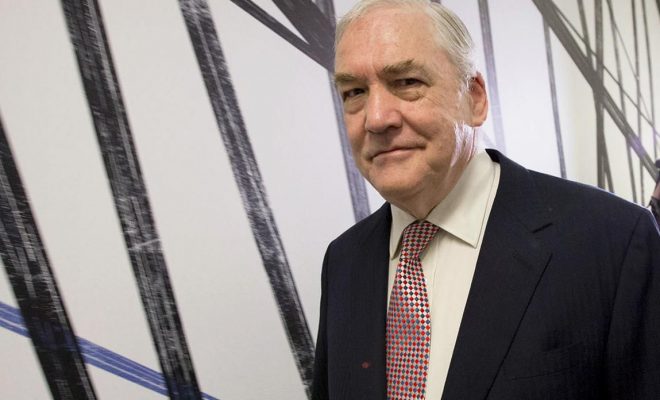Could Conrad Black run a public company again, now that he’s been pardoned?

Remember Conrad M. Black? The sociable Montreal-born author and press tycoon, who was found guilty in 2007 by a Chicago jury of three counts of wire fraud and one count of obstruction of justice. He had been accused in 2005 of looting Hollinger International Inc., the Chicago-based company heheaded, of over $80 million. He spent a little over three years in prison for this convictionwas also fined $125,000.
Mr. Black was back in the news recently after the United States President, Donald Trump, granted him a full pardon on his conviction. The presidential pardon was motivated by the fact that the president thought Black had been a victim of an unjust verdict.
Black’s pardon was received with mixed feelings by the general public. Some seem to think he deserved the pardon. After all he is an intellectual, l who seem to have served his time in prison with dignity and also made a massive contribution to the well-being of other prisoners less privileged than him in terms of background and education. Of course there are others who think there is some foul play involved, after all, Black appears to be a personal friend to president Trump.
At the time of his criminal conviction in the U.S., a panel of the Ontario Securities Commission in 2015 permanently banned Black from serving as a director or officer of any public or private company that issues securities in Ontario. The OSC had determined at the time that the conduct by Black and former Hollinger executive John Boultbee was “sufficiently abusive” to warrant the ban.
Despite having his conviction now erased, reports on The Star confirm that penalties imposed on the former CEO by the Ontario Securities Commission remain in force. However, Margaret Love, a former White House pardon attorney quoted on The Star, says the regulator could be motivated to take another look.
“I think they might, because it has been quite a long time — he’s served his sentence and the sovereign jurisdiction that convicted him thinks it’s time for him to start anew and to get a second chance.” Love runs a law practice in Washington, D.C. which specializes in executive clemency and has served as U.S. Pardon Attorney between 1990 and 1997 before leaving public office.
He also told The Star, that Black’s presidential pardon does not force foreign jurisdictions or even the U.S. Securities and Exchange Commission to undo any regulatory or other consequences that emanated from the court’s decision.
Black, who had published newspapers in the past, including the National Post, agrees with the president that he was just a victim of an unjust verdict. He says, “My long ordeal with the U.S. justice system was never anything but a confluence of unlucky events, the belligerence of several corporate governance charlatans, and grandstanding local and American judges, all fanned by an unusually frenzied international media showing exceptional interest in the case because I was a media owner.”








